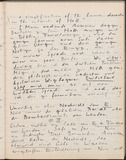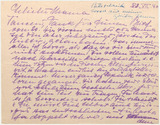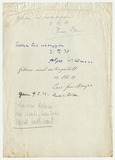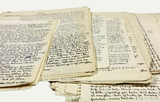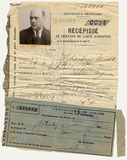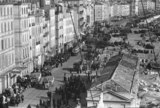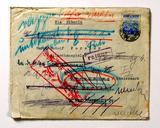Language
Language is a repository of memories and experiences. It is the bearer of breeding and culture, and the central access to social life and structure.
Letters
Letters from exile: what distinguishes them from those written at home or on holiday?
Lisbon
The waiting room of EuropeUnder the dictatorship of António Oliviera Salazar, Portugal was never a land of exile during the Nazi era. Although there were a few exceptions, from the outset the authoritarian regime was massively opposed to the influx of immigrants and refugees.
Literary prize competition
American Guild for German Cultural Freedom, 1937-1939The American Guild had planned the literary prize competition since its inception, as shown by the eleven page Plan of Action from April 1936. The actual implementation started at the beginning of 1937.
Literature
What is it that sets literature apart as an art form and what happens to literature when an author is forced into exile?Literature is characterised by writing and by language and, like all arts, it depends on a public. Narrated worlds adhere to their own rules of space and time.
Living conditions and everyday life in exile
People who go into exile leave a lot behind, especially if they have to escape quickly. In their families, often the only ones who can follow are direct relatives like husbands/wives and children; possessions and social networks are left behind.
Marseille
When the German army marched into France in the summer of 1940, the country ceased to be a safe place of exile. German occupation triggered off a mass exodus to the “zone libre” in the South of France. However, German émigrés were not even safe there for long, as Pétain, the French head of state, was obliged under the ceasefire agreement to extradite on demand.
Mascha Kaléko Online
Young MuseumThe Jewish writer Mascha Kaléko (1907-1975) had to escape from Germany during the time of National Socialism just as many other Jews. Only in 1938, almost in the last minute, together with her husband, Chemjo Vinaver and their 2 year old son Steven, they boarded on a train to Paris. From there, their journey went on until they reached New York.
Matters of Exile
Project in the frame of the Kinderland Foundation's "Cultural Academy for Literature"In the Kinderland Foundation's "Cultural Academy for Literature" with Silke Scheuermann and Matthias Göritz during the carnival holidays 2013, 20 students in the age of 12 to 15 years have discussed and written about exhibits from the Museum of Modern Literature, which all point out to one topic: What is exile?
Mexiko
Relatively few German-speaking emigrants fled to Mexico compared to those in other Latin American countries. About 3,000 German-speaking refugees found refuge there, most of them between 1940 and mid-1942, including writers and artists who had been in exile in France from 1933-1940.
